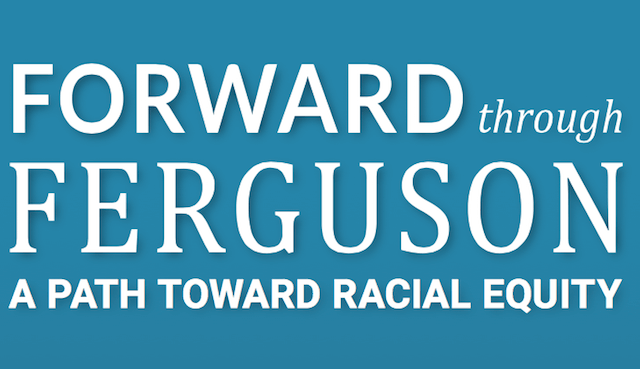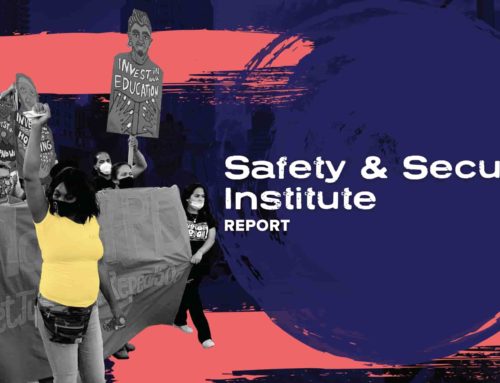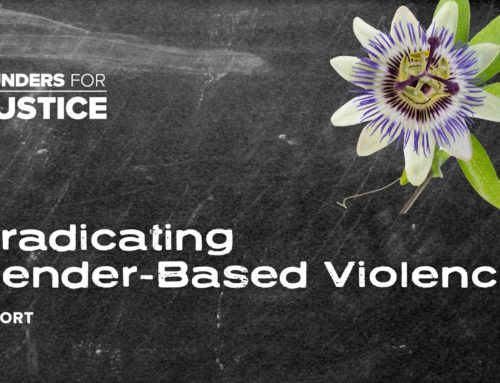by Kenrya Rankin Naasel, ColorLines
Mon, Sep 14, 2015
Today, the Ferguson Commission—a group of regional leaders assembled by Missouri governor Jay Nixon last November—released a report aimed at addressing the social, political, historic, economic, educational and racial issues that led to the uprising following Michael Brown’s killing on August 9, 2014.
The authors describe “Forward Through Ferguson: A Path Toward Racial Equity” as “a wide-ranging, in-depth study of the underlying issues brought to light by the events in Ferguson.” In it, the 16 members of the commission not only address the meat of the issues, but also lay plain the connective tissue between them to encourage a holistic view of both the problems and the recommended solutions.
To compile the report, the commission reviewed published studies, conducted original research with the University of Missouri’s Institute of Public Policy, and heard testimony from subject-matter experts. There were four working groups, which each turned an eye to one of the following areas, all through lenses that considered racial equity, generational change and health equity:
Citizen-Law Enforcement Relations. This group explored use of force, police training, civilian oversight anti-bias and cultural competency, special prosecution and more, with the aim of designing policies and accountability measures that challenge law enforcement agencies to better serve and protect.
Municipal Courts and Governance. This group was tasked with reforming the system to have just governance at its core and designing ways to restore community trust. Members examined citizen rights, municipal court fees and alternative sentencing, among other topics.
Child Well-Being and Education Equity. The goal here was to ensure that all youth from birth to 25 are growing to their full potential while still being able to move through the world as innocent children. This involved researching school accreditation polices, food instability, public education funding, social service coordination with schools, child health and parental engagement.
Economic Inequity and Opportunity. This working group focused on enabling innovating pathways to economic opportunity, and it explored economic mobility, job training, housing, transportation, health and entrepreneurship.
The commission is set to disband on the last day of 2015. In the meantime, it aims to help create an organization that will implement the recommendations and ensure accountability. Among the 189 policy calls to action found in the report:
- Create a 25-year fund to support racial equality.
- Assign the attorney general to act as special prosecutor for all use-of-force cases.
- Update use-of-force statue for fleeing suspects to align with the Supreme Court’s decision in Tennessee v. Garner, which prevents deadly force unless the suspect poses threat of death or serious physical injury to the officers or others.
- Develop a comprehensive demonstration response plan.
- Support early childhood education.
- Reform school discipline policies.
- Expand Medicaid eligibility.
- Raise the minimum wage.
Read all of “Forward Through Ferguson: A Path Toward Racial Equity.”



